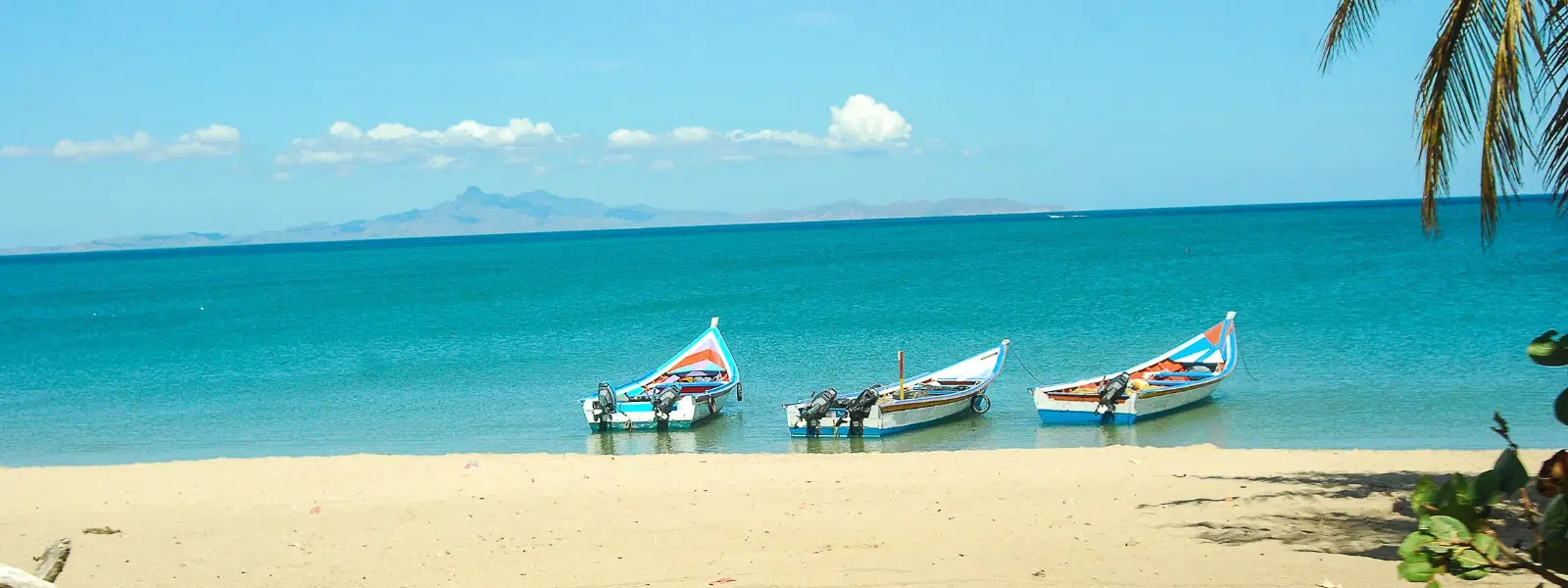
Hotels
•04 min read

Imagine stepping onto pristine shores, surrounded by endless azure waters, and discovering the hidden gems of a cluster of islands. This adventure into a collection of islands is not just about travel; it's an immersive journey to witness nature’s most spectacular wonders. In this blog post, you will learn how to explore an island group like an expert—from understanding exciting terminologies to planning every detail and ensuring your travels are ethical and respectful.
When discussing a collection of islands, you come across terms like archipelago, island chain, cluster of islands, and island group. Each term paints a picture of multiple pieces of land surrounded by the vast ocean. These groups can represent the geographical diversity of oceanic islands, coastal islands, and even the more elusive remote islands.
Different parts of the world showcase distinct island collections, each a marvel of natural creation. For example, the Maldives are renowned for their tropical islands, while the Hawaiian Islands present a dramatic volcanic archipelago formation. Meanwhile, the Galápagos Islands are celebrated as a famed collection of remote islands, each with unique biodiversity. The formation, flora, fauna, and ecosystems of these clusters offer a diverse palette for explorers, making every trip a refreshing new discovery.
Before setting sail, it is essential to conduct thorough research on your chosen island paradise. Decide whether you crave adventure like scuba diving and hiking or whether you’re looking for serene relaxation. Consult travel guides, read blogs, and check local tourism boards to gather insights that best match your interests. This way, you ensure that your journey to an exotic island is perfectly tailored to what you love most.
Exploring a collection of islands requires light and practical packing. Opt for lightweight clothing that suits the tropical climate and waterproof gear to handle unexpected showers. Additionally, pack essential navigation tools, such as detailed maps or reliable GPS apps, ensuring that the beauty of your island adventure remains uninterrupted by mishaps in navigation.
Every island group comes alive not only with its landscapes but also with its local traditions and delicate ecosystems. Respecting local cultures—be it in Polynesian communities or the diverse traditions found in Indonesia—is integral. Learn about traditional practices, environmental norms, and the conservation efforts in place, so you can be a mindful traveler while soaking in the diverse experiences.

Traveling between islands can be a thrilling challenge and one of the highlights of visiting a collection of islands. Consider using ferries, charter boats, or even seaplanes for a more efficient and enjoyable transfer from one island to another. Plan your route carefully to maximize your time and experience every facet of the island chain without feeling rushed.
To truly capture the essence of your island adventure, engage in activities that let you feel a part of the local rhythm. Snorkeling in crystal clear coral reefs, hiking along scenic coastal trails, or relishing traditional island cuisine can enrich your travel experience. Furthermore, building genuine connections with locals can reveal hidden spots and authentic traditions that mainstream tourism may overlook.
Every explorer carries memories home, and photo opportunities abound in a collection of islands. Use photography to capture breathtaking landscapes, vibrant local life, and rare wildlife. Early morning or late afternoon light can dramatically enhance your shots, giving a magical touch to scenes of untouched island paradises.
Tourism, when not practiced thoughtfully, can impact fragile island ecosystems. It's essential to understand the environmental challenges these tropical islands and remote islands face. Minimize plastic use, stick to designated trails, and always adhere to local guidelines that protect the natural charm of these oceanic islands and coastal islands.
Ethical travel is as much about preserving nature as it is about uplifting local communities. Contributing positively to local economies not only enhances your travel experience but also helps sustain cultural heritage. Look for opportunities where your visit supports eco-friendly initiatives and local artisans, celebrating a spirit of responsible tourism that resonates deeply with the ethos of simple, genuine travel.
Many archipelagos, such as the Galápagos Islands, are home to species found nowhere else on Earth. Protecting these islands is vital for preserving global biodiversity.
For those enchanted by warmth and breathtaking beaches, tropical islands in regions like the Caribbean, Seychelles, and Fiji offer sun-drenched experiences that are both rejuvenating and inspiring. Their vivid marine life and vibrant cultures make them ideal destinations for every traveler.

If your spirit yearns for unspoiled tranquility, consider exploring remote islands such as the Faroe Islands or the Andaman and Nicobar Islands. Their isolation offers an intimate drape of raw nature and a sense of untouched wonder that is hard to find in more commercialized travel spots.
For the intellectually curious and adventure seekers, oceanic and coastal islands—like those found near the Great Barrier Reef or in the Japanese archipelago—offer experiences replete with dramatic vistas, intriguing cultural intersections, and a vibrant array of wildlife. These journeys are often punctuated by moments of profound connection with nature.
An archipelago is the collective term for a group or cluster of islands.
A group of islands is commonly referred to as an archipelago, island chain, or island cluster.
Indonesia is the largest archipelago country, consisting of over 17,000 islands.
Examples include the Hawaiian Islands, the Maldives, and the Galápagos Islands.
Underwater volcanic activity can create islands by pushing magma to the surface, which solidifies into land over time.
Exploring a collection of islands opens up a world where nature, culture, and adventure seamlessly merge. By learning key terminologies, preparing meticulously for your journey, and traveling in an ethical manner, you can unlock the secrets of tropical islands, remote archipelagos, and those enchanting island paradises. This experience promises not only exploration but also a deep connection with the environmental and cultural essence of each destination.